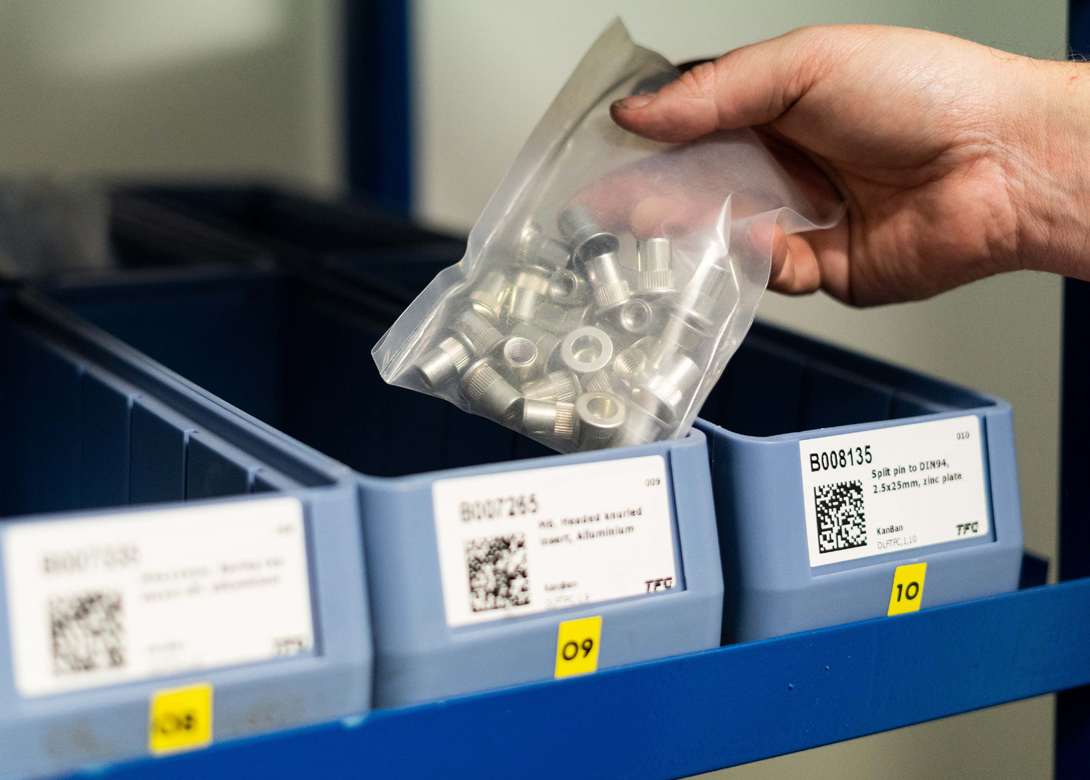
The phrase ‘just in time supply chain’ probably meant nothing to the average consumer before the coronavirus pandemic. Here Keith Kentish, group commercial director at TFC Ltd, shares guidance for manufacturers on supply chain management, while the industry is under the microscope.
Covid-19 has highlighted how important the domestic supply chain is, particularly for essential medical products, for example, to produce ventilators for patients in intensive care or the supply of personal protective equipment (PPE) to frontline workers.
In contrast, much of the automotive manufacturing industry ground to a halt, with a ripple effect felt across the supply chain. The impact has certainly been felt in the fastener market. As the manufacturing industry begins to return to work, manufacturers may now feel added pressure to catch up with a backlog of orders.
The impact of the pandemic has been felt by many businesses, resulting in a multitude of supply chain problems, such as overstocking, lacking the space to store components or assemblies that cannot be moved further on, or struggling to source the parts needed to keep production running. Even the smallest, cheapest component can cause production downtime if not delivered on time, which in turn can damage a manufacturer’s own reputation if assemblies are not delivered on time.
Consolidating suppliers for example, by turning to vendor managed inventory, could be a new way to run the business, meet budgets, margin enhancement expectations, and production KPIs, and help maintain revenues.
As businesses return to work, they can move to new ways of working or turn to new technology to help employees work safely and productively. Social distancing may mean more processes move from paper to online processes via EDI and MRP/ERP integration – electronic ordering, for example, means that orders can be placed and processed without anyone having to physically touch them.
Discussing with a potential new service provider whether it offers overnight installations, bin pre stocking or pre labelling could help you to access the components you need while minimising time on-site and maintaining effective social distancing. Technology can also be used in other ways to help manage inventory on a manufacturing side.
Small and medium manufacturers may find it difficult to get hold of the parts needed, as they may not carry as much purchasing leverage or meet the minimum order value. Establishing relationships with larger supply chain businesses can help smaller businesses to benefit from the leverage of a partner, one that orders regularly and orders big. TFC for example, passes on cost reductions to its customers by purchasing on behalf of numerous businesses from UK distribution and wholesale, European and Far East partners.
The supply chain and logistics industry is clearly in for a shake-up. There is currently no clear and comprehensive solution to carry manufacturing forward. However, by sharing our knowledge, skills and expertise, we can develop creative, effective solutions together.

Biog
Having spent a decade in the fastener industry experiencing every facet – from steel mills, fastener manufacturers, wholesalers, distributors, as well as machinery builders and plating + coating companies, Claire has developed an in-depth knowledge of all things fasteners.
Alongside visiting numerous companies, exhibitions and conferences around the world, Claire has also interviewed high profile figures – focusing on key topics impacting the sector and making sure readers stay up to date with the latest developments within the industry.







